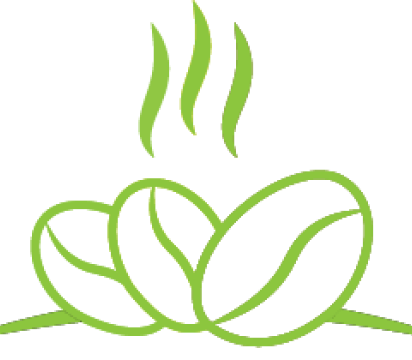
Coffee Process
Media

CEO NOTES
The spread of organised coffee cultivation in Ethiopia - as related by lsrael Degefa.
Coffee spread to the highland areas of Sidamo where the trees are newer. In my home area, the trees can be 65-85 years old. Trees this mature no longer produce good, flavoursome coffee but farmers have been resistant to replanting due to the perceived interruption in their income. On a side note, in response to this issue Kerchanshe now runs a range of ...

Adola District

Washing Stations
- Uraga
- Shakiso Walabu
- Anasora
- Aleta Wondo
Branch Profile
Adola District
Location - Guji zone Altitude - 2000m
Adola is a woreda in the Oromia region in the Guji zone of Ethiopia. The word Adola means ‘source of gold’ i.e. a gold mine. It is a region bound by green forest and mountains and the view is splendid. Adola woreda is bordered by Uraga on the South, by Odo Shakiso on the southwest, Bore on the west, by Haranfemiy woreda on the north and Anasora on the east.
Site decription
Adola site is found in Adola Dstrict(Adola Town) of East Guji province of Oromia State, Ethiopia. The site is located 450 km South of Capital Addis Ababa(between 5° 44'10“ N-6° 12' 38“ N latitude and 38° 45'10“ E longitude - 39°12' 37“ E). The district is characterized by bi modal rainfall, meaning from February to March and May to July are rainy months, while September to December is a dry season. The temperature of the district is high, with records showing significant seasonal and daily variations in all respects. Over 80 % of the District ranges from mid highland to highland(1750-2050asl), with an ample rainfall of about 1500mm per annum. The temperature ranges between 12℃-28℃ showing high daily and annual variation. The District has a favorable condition for coffee growing. The major soil type of district is nitosols red basaltic soil which is favorable for.
Coffee Type
Adola coffee is heirloom variety known for its exceptional fruity flavors; small rounded beans with blue berry and also spicy notes of rue, cardamom and vanilla notes with medium to full body and mild pointed to high pointed acidity.
Production
When we look at the socio-economic activities, over 90 % of the community members are engaged in mixed farming, which provides their main source of livelihood. The farmers grow subsistence crops as main stay as well as cash crops like coffee. Coffee has a significant role in local economy. Currently 2700 farmers with coffee farm of about 5000ha are working with Kerchanshe Trading PLC an out-grower farmers.
Processing
We receive cherries from these farmers and process it. The processing is done in 2 ways; wet and dry processing.
For wet processing Red coffee cherries are taken to the pulping machine (which removes the fruity part from the parchment). The next step is fermenting the parchment by soaking in fermentation pond for 36hours. The purpose of this fermentation is to remove the sugarymucilage from the parchment. Following the fermentation process the parchment is get washed by human power.
For dry Processing we collect red cherries and leave place it on raised drying beds to get dried by sun in open space. In some cases when there is continuous rain we use artificial drier. After cherries get dried we take it to huller machine were the coffee husk is get removed. The company owns 3 wet mills and 2 dry mills at this unit which have the collective capacity of producing over 2,000,000 kg of green beans.